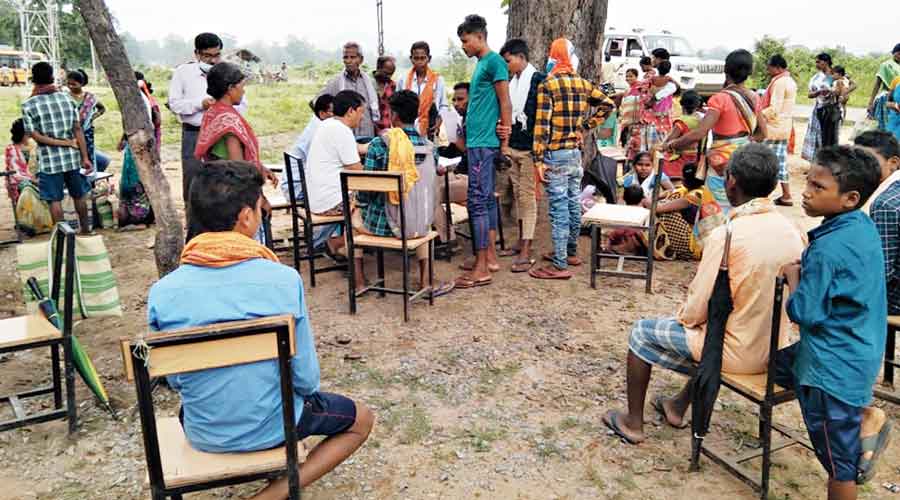People living in the remote areas of rebel-hit Bastar region of Chhattisgarh, who have been deprived of basic facilities for years, are now getting the services through special camps organised by the government.
The Chhattisgarh government under Bhupesh Baghel has been organising these camps for redress of grievances related to Aadhar card, ration card, Ayushman Bharat (central health scheme) card and pension.
In Maoist-hit areas such as Silger, Minapa and Sarkeguda villages in Sukma district, villagers throng similar camps in large numbers. The positive response by the villagers has prompted the administration to increase the duration of the camps.
To provide various facilities to the villagers of these sensitive areas in Sukma district, a facilitation camp was organised at Sarkeguda. Vehicles were also arranged by the administration so that the villagers do not face any problem in commuting to the campsite.
“Villagers of Minapa and Silger had informed the administration about their problems, for which facilitation camps are being set up in these areas for quick redress. Similar camps will be organised in other villages in the coming days,” said a source in the Sukma district collectorate.
The camp strategy adopted by the Chhattisgarh government to provide basic facilities like education, health, employment, drinking water to the remote villages are proving to be very effective.
There are seven districts in the Bastar division — Sukma, Bijapur, Dantewada, Narayanpur, Kondagaon, Bastar (Jagdalpur) and Kanker. These seven are included in the list of aspirational districts of the country. In these tribal-dominated districts, access to facilities in the hinterland has always been a challenge due to geographical complexities and Maoist activities.
The Baghel government decided to adopt a camp strategy according to the local conditions for the development of the Bastar division by moving away from the traditional methods.
“This new strategy of governance is based on the principles of development, trust and security. To ensure an environment of security in the Maoist-affected interior areas, security force camps were set up at various places,” said an official in the chief minister’s secretariat.
These safety caps opened the way for other camps related to public conveniences.
After the mobile clinics under the Mukhyamantri Haat Bazaar Clinic Yojana, now medical camps have started in the weekly markets in tribal areas, where the villagers are getting the facility of free check-up, treatment and medicines.
Success has been achieved in restarting hundreds of schools that were closed due to Maoist violence.
Apart from the Hindi medium in traditional schools, English medium schools have also been started at various places along with teaching in local dialects. The English medium schools are being operated under the Swami Atmanand English Medium School Scheme, in which free education is being provided to every student with facilities at par with private schools.
Amid the Covid pandemic, Chhattisgarh collected the maximum amount of minor forest produce in the country.
“Most of the minor forest produce in the state is collected from these seven districts of Bastar division. With better strategy, now the collection of minor forest produce is being done in a more systematic and organised manner. From their collection to purchase, the work is being done by the forest dwellers only. These forest produces are being procured by self-help groups through purchase camps set up in haat-bazaars,” the official said.
The enthusiasm of the villagers has increased due to the increase in the price of minor forest produce given by the government and increasing the number of such products purchased on support price from seven to 52.
The minor forest produces collected from the forests of Bastar are being processed locally, due to which people are getting employment and benefits on a large-scale, the official said.










